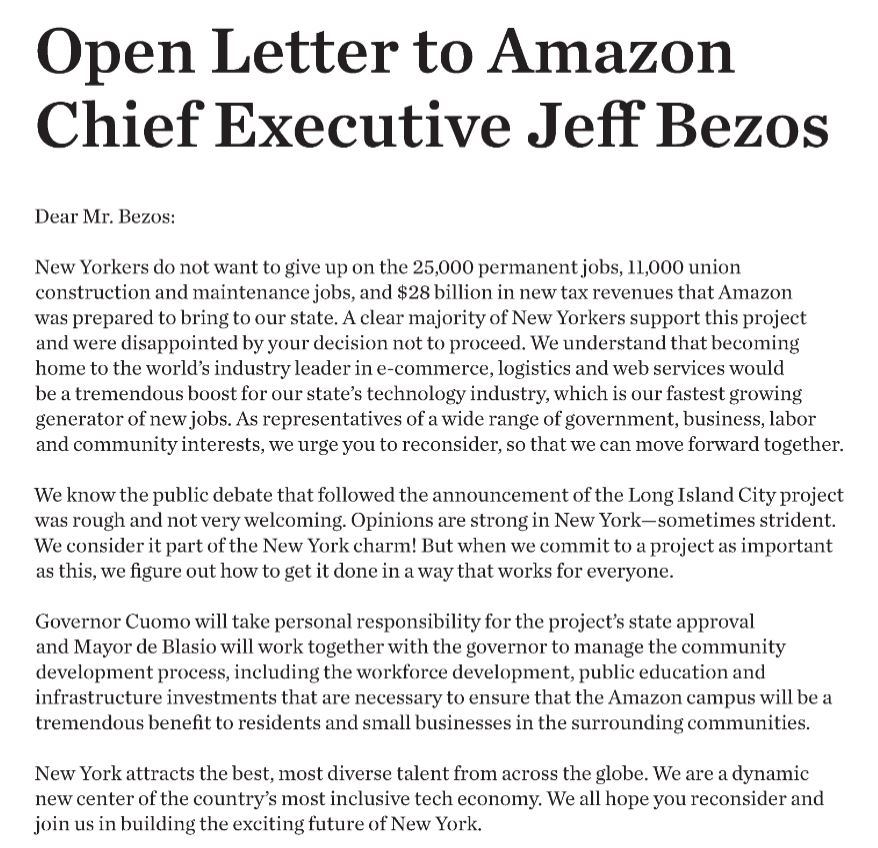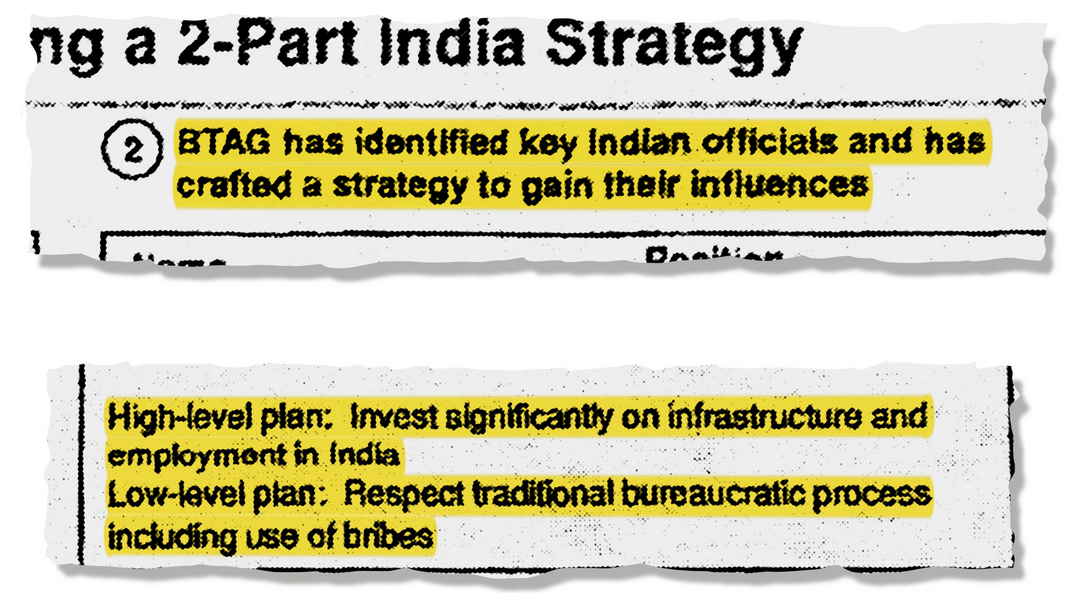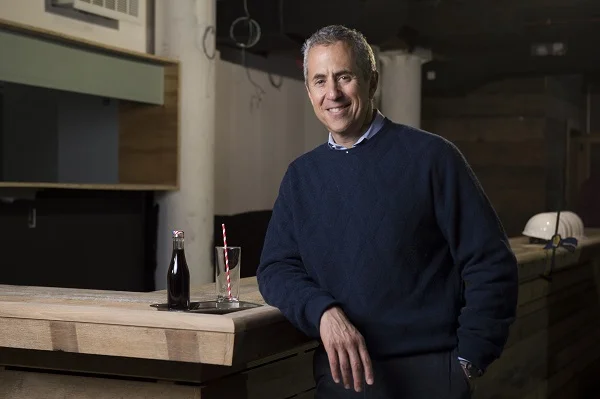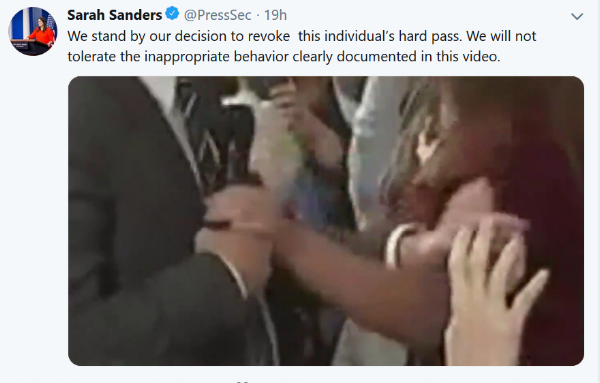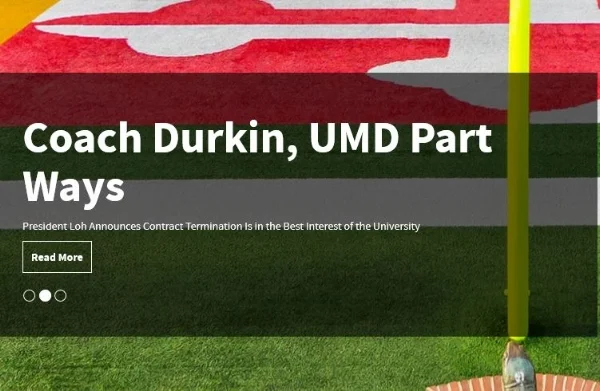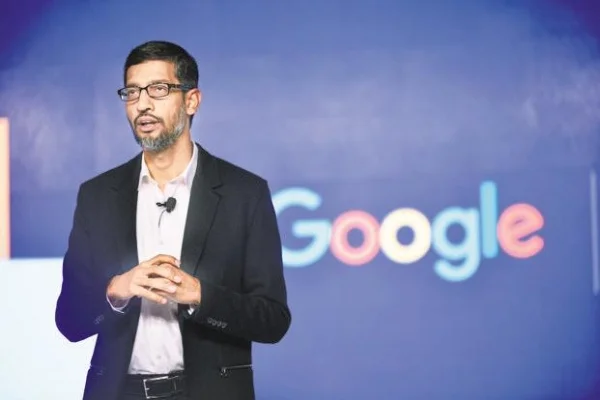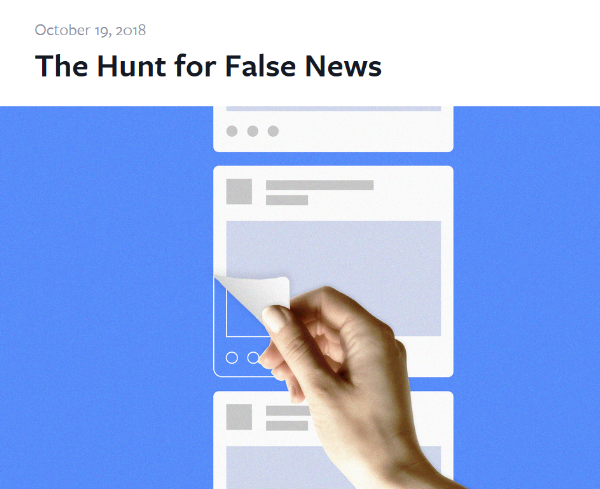OurBus Handles a Mistake with Humor
OurBus sent an email with a link that wasn’t yet working and quickly corrected the mistake with some fun. The company offered a $7 discount for rides booked on St. Patrick’s Day and corrected the link with the subject line, “Our Bad. That code doesn't quite work yet...”
In the first email, the date is clearly March 17, but the subject line, “It's your lucky day. Our flash sale starts NOW,” is certainly deceiving.
Discussion:
Assess the second message from OurBus. How well did the company handle the situation? What changes would you suggest? (Hint: alignment.)
Are people still saying “my bad”? Did they intend to play on “OurBus” with “Our bad”? If so, would it have been better to write, “OurBad”?
Which leadership character dimensions does this situation illustrate?
Another Boeing Plane Disaster
The same model Boeing plane that crashed in Indonesia last month has crashed on its way to Nairobi. Although U.S. Federal Aviation Administration confirmed that the Boeing 737 MAX Jet is safe, several airlines have grounded the planes. Other groups, such as the Association of Flight Attendants-CWA, have called for an investigation: “While it is important that we not draw conclusions without all of the facts, in the wake of a second accident, regulators, manufacturers and airlines must take steps to address concerns immediately.” American Airlines will continue to fly the planes. A spokesperson for the pilot union said, it is “very early, but we are watching it very, very closely.” Norweigan Air has grounded the planes based on advice from European Aviation Group, and the UK has banned the model from its airspace.
With 40% of the planes out of service, Boeing is taking a financial and public relations hit. In a message to employees, Boeing CEO Dennis Muilenburg wrote, “We are confident in the safety of the 737 MAX and in the work of the men and women who design and build it.” He also wrote, “Since its certification and entry into service, the MAX family has completed hundreds of thousands of flights safely.”
Boeing’s website statement expresses condolences and describes plans for a software enhancement.
Discussion:
How much evidence is enough to determine whether to ground planes? What is the logical fallacy to be avoided?
How well is Boeing handling the communication? Consider both internal and external messages. What are Muilenburg’s challenges at this point?
Alex Trebek Announces Bad News
Alex Trebek, the longtime host of “Jeopardy!” announced that he has pancreatic cancer. Since 1984, Trebek has been almost synonymous with the TV show, and now his Stage 4 diagnosis is casting doubt on the show’s future.
In a video, Trebek, announced the news with optimism and some humor, referencing his three-year contract. Unfortunately, the prognosis for pancreatic cancer is very poor. The ten-year survival rate is only one percent—the lowest rate of any cancer. Steve Jobs died of pancreatic cancer in 2011.
Discussion:
Assess Trebek’s video announcement. How does he convey the bad news and display emotional appeal?
Did he do the right thing by announcing the news himself? Why or why not? How do the show and network benefit, and what are the downsides?
What leadership character dimensions does Trebek demonstrate?
Assess the cancer survival rate chart. What principles of business communication does the designer follow, and how could it be improved?
Equifax and Marriott CEOs Testify About Security Breaches
U.S. Senators grilled Equifax and Marriott CEOs about data breaches at the companies in the past two years. Equifax CEO Mark Begor responded to questions following a Senate subcommittee report titled, “How Equifax Neglected Cybersecurity and Suffered a Devastating Data Breach.” The report concludes an investigation of the 2017 breach of 143 million customers’ personal data and accuses the company of not prioritizing security, not following its own patching policies, failing to notify the public in a timely manner, and more.
Begor defended the company and blamed the increasing sophistication of hackers:
“These attacks are no longer just a hacker in the basement attempting to penetrate a company’s security perimeter, but instead are carried out by increasingly sophisticated criminal rings or, even more challenging, well-funded nation-state actors or military arms of nation-states.”
But Senators pointed out that credit company competitors Experian and TransUnion have managed to avoid similar attacks.
The Marriott breach affected 83 million guests of Starwood, which Marriott acquired after the breach took place. Compared to the Equifax situation, Marriott got a pass from senators, such as Tom Carper of Delaware, who said, “The data breach announced by Marriott this past November does not appear to have been caused by the same cultural indifference to cybersecurity the record indicates existed at Equifax. Rather, it looks like Marriott inherited this breach from Starwood.”
Marriott has been consistent in blaming Starwood for the issue, wanting to preserve the brand. In his testimony, CEO Arne Sorenson reinforced the company separation:
“We conducted an assessment on integrating the two systems, although this inquiry was legally and practically limited by the fact that until the merger closed, Starwood remained a direct competitor.”
Here is Sorenson interviewed on CNBC:
Discussion:
Watch some of the testimony. How well did each CEO handle the Senators’ questions?
Assess Sorenson’s appearance on CNBC. What did he do to try to rebuild the company’s image? What persuasive strategies did he use?
Review the subcommittee’s report on the Equifax breach. How is the report organized? How would you describe the writing style and tone? What suggestions would you have for the authors to improve readability?
From your perspective, what leadership character dimensions do the CEO illustrate or fail to illustrate?
Measles: Evaluating Evidence
The news about a resurgence of measles raises interesting questions about how we evaluate evidence. About a dozen years ago, a small study alarmed parents and caregivers that the measles vaccine may cause autism. Since then, several large-scale studies have debunked that theory, and the article was retracted.
But the damage was done—and it lingers. A few hold-outs still believe the vaccine may be dangerous, and so they do not have their children vaccinated.
Recently, about 100 measles cases have emerged in the U.S., and once again, the evidence is up for evaluation. How are people convinced? What makes people change their minds?
In his book Factfulness, Hans Rosling offers this advice:
[I]f you are skeptical about the measles vaccination, I ask you to do two things. First, make sure you know what it looks like when a child dies from measles. Most children who catch measles recover, but there is still no cure and even with the best modern medicine, one or two in every thousand will die of it. Second, ask yourself, “What kind of evidence would convince me to change my mind?” If the answer is “no evidence could ever change my mind about vaccination,” then you are putting yourself outside evidence-based rationality, outside the very critical thinking that first brought you to this point. In that case, to be consistent in your skepticism about science, next time you have an operation, please ask your surgeon not to bother washing her hands.
Along these lines, a Medium article, The Falsification Mindset, suggests ways for us to change our opinions. The author encourages us to consider what evidence we would need in order to change our minds. This process is particularly useful because we more typically look for reasons to continue believing what we believe—confirmation bias.
Discussion:
What examples can you identify of when you have experienced confirmation bias. In retrospect, could you have avoided the bias to make a better decision or to have a more accurate view?
What’s your view of the measles vaccination? How did you form this opinion? How has it changed over time?
Identify a belief. What evidence would you need to think differently?
How is humility relevant to this situation?
Open Letter to Amazon
After Amazon’s failed move to Long Island City, Queens, local executives, lawmakers, and others signed an open letter asking Amazon to reconsider. The letter focuses on the benefits NYC would gain from having Amazon, particularly 25,000 new jobs.
Also appearing as a full-page ad in the New York Times, the letter includes some emotional appeal about New Yorkers’ “charm” and acknowledges difficulties in getting community support for the project. Not until the last paragraph do we see a shift from New York to Amazon and how the company would benefit from building in Long Island City.
Discussion:
What principles of persuasion does the letter illustrate?
How could the letter be improved?
What leadership dimensions are illustrated? Which may be lacking?
HBO CEO Departs
HBO CEO Richard Plepler is leaving the company. His announcement came shortly after HBO’s chair of the board spoke with the WarnerMedia CEO about possibly taking over HBO and Turner.
Here is Plepler’s email to employees:
My dad always gave the best advice. Whenever there was a difficult decision to make, he counseled that since no one could ever have perfect visibility into the future, the best thing you could do was trust your instincts. It has been a touchstone for me throughout my life, and I have found myself returning to it again recently as I think about what is an inflection point in the life of this wonderful company. Hard as it is to think about leaving the company I love, and the people I love in it, it is the right time for me to do so.
In the past weeks, I’ve thought a lot about the incredible journey of this company in the nearly 28 years that I have been blessed to be here. It’s a journey of great pride and accomplishment because so many of you, and many others before us, have made HBO a cultural and business phenomenon. Thanks to all of you, we are today churning on all cylinders both creatively and as a business. Thanks to all of you, I can move on to the next chapter of my life knowing that the best team in the industry remains here to carry on our continued progress and success. As I have said before, this is the team of teams.
It has been the great joy of my professional life to share this ride with you over these many years. And the great honor of my professional life to be your CEO. I don’t have the words to express my gratitude for the support and talent that made our success together possible. But suffice it to say, my love for this place, and for all of you, is deeply a part of me and will last a lifetime. I look forward over the coming weeks to thanking as many of you as I can for the thousands of contributions big and small that have made “this thing of ours,” to quote Tony Soprano, so special. I have told John, who has been nothing but gracious since we spoke, that I would work closely with him to assure a seamless and organic transition.
We’ve created a great and unique enterprise and I know that you will protect its legacy and do all to enhance its future in the years to come.
Know that I will always be cheering loudly, even when I am outside this building, as HBO continues to thrive.
With respect, admiration, and gratitude,
Richard
Discussion:
Assess Plepler’s email. Who are his primary and secondary audiences? What are his communication objectives?
What principles of business communication does Plepler follow, and how could he improve the email?
What, if anything, does he give as the reason for his decision? Should he say more about this? Why or why not?
What leadership character dimensions are illustrated by his email?
Instacart Tries to Make Things Right
Criticized for underpaying shoppers, personal grocery delivery company Instacart is changing its compensation model. Personal shoppers were always paid a minimum for orders, but the company had started including tips in that minimum amount. The company admitted to paying only 80 cents in some cases for someone to pick and deliver a batch of groceries. In a petition, personal shoppers claimed that “customers' tips are essentially being paid to Instacart rather than to the workers ourselves.”
In a blog post, Instacart CEO Apoorva Mehta admits “clearly we haven’t always gotten it right.” He announced policy changes to ensure the following:
Tips should always be separate from Instacart’s contribution to shopper compensation
All batches will have a higher guaranteed compensation floor for shoppers, paid for by Instacart
Instacart will retroactively compensate shoppers when tips were included in minimums
Discussion:
Read Mehta’s entire blog post. What principles of business communication does he follow? What, if anything, can be improved?
In what ways does Mehta demonstrate strong leadership character?
How could Instacart have avoided this situation, including the negative effects on personal shoppers and the negative publicity?
Amazon Changes NYC Plans
After months of searching for a new headquarters location and deciding on Long Island City, Amazon has changed course and withdrawn the plan. In a blog post, the company explained the decision:
After much thought and deliberation, we’ve decided not to move forward with our plans to build a headquarters for Amazon in Long Island City, Queens. For Amazon, the commitment to build a new headquarters requires positive, collaborative relationships with state and local elected officials who will be supportive over the long-term. While polls show that 70% of New Yorkers support our plans and investment, a number of state and local politicians have made it clear that they oppose our presence and will not work with us to build the type of relationships that are required to go forward with the project we and many others envisioned in Long Island City.
We are disappointed to have reached this conclusion—we love New York, its incomparable dynamism, people, and culture—and particularly the community of Long Island City, where we have gotten to know so many optimistic, forward-leaning community leaders, small business owners, and residents. There are currently over 5,000 Amazon employees in Brooklyn, Manhattan, and Staten Island, and we plan to continue growing these teams.
We are deeply grateful to Governor Cuomo, Mayor de Blasio, and their staffs, who so enthusiastically and graciously invited us to build in New York City and supported us during the process. Governor Cuomo and Mayor de Blasio have worked tirelessly on behalf of New Yorkers to encourage local investment and job creation, and we can’t speak positively enough about all their efforts. The steadfast commitment and dedication that these leaders have demonstrated to the communities they represent inspired us from the very beginning and is one of the big reasons our decision was so difficult.
We do not intend to reopen the HQ2 search at this time. We will proceed as planned in Northern Virginia and Nashville, and we will continue to hire and grow across our 17 corporate offices and tech hubs in the U.S. and Canada.
Thank you again to Governor Cuomo, Mayor de Blasio, and the many other community leaders and residents who welcomed our plans and supported us along the way. We hope to have future chances to collaborate as we continue to build our presence in New York over time.
Amazon claims the new office would have created 25,000 jobs, but NYC lawmakers questioned the subsidies the company would have received. Critics also oppose Amazon’s anti-union stance and cite concerns about how the growth would affect Queens. In the end, officials say Amazon was inflexible; one local politician referred to the company as “a petulant child.”
According to a New York Times article, “Amazon’s decision is a major blow for Gov. Andrew M. Cuomo and Mayor Bill de Blasio, who had set aside their differences to lure the giant tech company to New York.”
Long Island city image source.
Discussion:
Analyze Amazon’s statement. How well does the company announce the decision, while maintaining relationships?
What else, if anything, should the company say at this point?
Should Governor Cuomo or Mayor de Blasio make their own announcements? Why or why not?
Updates on the Virginia Govenor
Whether Virginia Governor Ralph Northam resigns just got more complicated. If Northam steps down because of racist photos in his yearbook, the lieutenant governor would replace him. But Justin Fairfax faces his own challenges: a woman accused him of sexual assault.
Fairfax denies the claims and refers to the incident at the 2004 Democratic National Convention in Boston as consensual sex. To complicate matters further, Fairfax has accused Northam’s supporters of a “smear” campaign:
“Does anybody think it’s any coincidence that on the eve of potentially my being elevated that that’s when this uncorroborated smear comes out?”
Fairfax also questioned whether Mayor Levar Stoney of Richmond may have been involved in the accusation to which Stoney responded, “The insinuation is 100 percent not true, and frankly it’s offensive.”
For its part, Eastern Virginia Medical School is investigating how the racist photos got into the 1984 yearbook.
Discussion:
What’s your view of Fairfax’s response?
Should a 2004 sexual assault charge prevent Fairfax from replacing Northam?
Should the replacement issue drive whether Northam resigns?
What is the medical school’s responsibility in this situation?
McKinsey PPT Slide Causes Problems
Back in 2006, Boeing hired management consultancy McKinsey to help the company launch its 787 Dreamliner despite rising titanium prices. According to a New York Times article, McKinsey evaluated a proposal for Boeing “to mine titanium in India through a foreign partnership financed by an influential Ukrainian oligarch.”
On a PowerPoint slide, the consultancy suggested that Boeing “respect traditional bureaucratic process including use of bribes.” Included on the slide were names of eight “key Indian officials.” As the article notes, “Nowhere in the slide did McKinsey advise that such a scheme would be illegal or unwise.”
McKinsey admitted authoring the report only after learning that the Times had a copy. Details are fuzzy, and McKinsey isn’t offering more explanation.
Discussion:
What’s your view of McKinsey’s responsibility in this situation? Do you believe they encouraged illegal activity, were just doing the job of management consultant firm and considering cultural realities, or something else?
The PPT slide seems to have implicated McKinsey. Should the consultants have been more careful about what was documented? Why or why not?
What character issues may be at play in this situation?
The NYT author wrote, “Nowhere in the slide…” I would say, “Nowhere on the slide…” Which is correct—or are both acceptable?
Prep School Criticized for Abuse and False Apps
College prep school T.M. Landry has garnered national attention for helping Black students get into college, but all has not been well at the school. Students are speaking out about emotional and physical abuse as well as falsified college applications.
According to a New York Times report, examples of physical abuse include “forced to kneel on rice, rocks, or hot concrete for hours” and being “choked, yelled at, and berated.” Students report being told to lie on college applications about classes they took and the conditions under which they grew up, for example, exaggerating their poverty.
The Landrys, a married couple who run the school, defended their actions, saying they push kids to their limits. Mr Landry admits to physical contact, and he said, “Oh, I yell a lot.” Since a 2013 case against him that included probation, Landry says he no longer practices physical punishment. He also denied falsifying students’ applications.
College results have not been great. Students who spent more time at the prep school are more likely to withdraw or transfer to less demanding programs. The New York Times article describes an unaccredited school with little traditional programming, so students may not be academically prepared for the schools that admit them.
Discussion:
Assess the school website. The opening video features Mr. Landry, and the rest of the site boasts college acceptances. How convincing might families find the way the school is promoted? Other than admitting abuse, should the site say more to give parents and prospective students a more accurate picture of the school philosophy and practice?
How is this situation an example of failing integrity? Also consider intent versus impact. What could the founders' intent, and how is that different from the impact?
Nissan Chairman Is Arrested
Nissan’s chairman was arrested for financial misconduct, including under-reporting his income in securities fillings. Carlos Ghosn may have been engaging in improprieties for years.
The news came as a surprise to many. Ghosn is a popular business figure, credited with turning around Nissan, Renault, and Mitsubishi by forming an alliance and directing cost-cutting and layoffs. According to a Wall Street Journal article, the shock is felt particularly at Renault; a union leader described the reaction as “a feeling of stupefaction and a lot of anger.”
The French government has a 15% state in Renault, so President Emmanuel Macron also weighed in: “As a shareholder, the French state will remain extremely vigilant regarding the stability of the alliance.” At this point, officials are still trying to sort out the news and determine leadership going forward.
Nissan CEO Hiroto Saikawa delivered a news statement, translated in English on Bloomberg. The company also issued this matter-of-fact statement.
Nissan image source. Ghosn image source.
Discussion:
Why would a successful business executive engage in financial misconduct? What leadership character dimensions are lacking?
How does financial impropriety go on for years in a situation like this? Who should be accountable for the misconduct?
Assess Saikawa’s news statement. What works well to improve brand image, and what could be improved?
Announcing a Restaurant Closing
Danny Meyer gives us a great model of how to write a bad-news message. In his announcement about closing the restaurant North End Grill, Meyer demonstrates communicating with humility and transparency.
Meyer describes the pain involved in closing a restaurant, including the effect on employees. He admits to mistakes and relates this closing to Tabla, which closed four years ago. He didn’t need to remind us, but he does so humbly, and as a lesson to learn from failure.
Meyer’s message is encouragement for compassionate, transparent communication planning:
All too often in our industry, a padlock on the front door might be the very first notice employees, landlords, and suppliers receive that a restaurant will be closing.
He also teaches us that leading requires courage:
[W]hen reality dictates closing, we have a choice: to do so in secrecy and shame, or instead, with dignity, integrity, and pride.
Restaurant image source. Meyer image source.
Discussion:
Analyze Meyer’s full statement: audience, objectives, writing style, organization, etc. What works well, and what could be improved?
In what ways does Meyer’s statement illustrate vulnerability as a leadership strength?
White House Tweets Doctored Video
There is no love lost, as they say, between President Trump and CNN Correspondent Jim Acosta. Now, Acosta has been suspended from the White House because of what Press Secretary Sarah Sanders described as “a reporter placing his hands on a young woman just trying to do her job as a White House intern.”
However, Sanders posted a video that Storyful compared to C-SPAN’s, and a different story emerges. In the C-SPAN version, Acosta’s hand inadvertently touches the intern’s arm. The White House version omits three frames, misleading viewers to see more aggressive touching—a “chop.”
A Wall Street Journal article and a Wired report show the videos frame by frame, side by side.
CNN posted that the news organization stands by Acosta, and Sanders tweeted that the White House stands by its decision.
Discussion:
One theory is that the White House obtained the doctored video from InfoWars, a conservative news organization. If this is true, should the White House staff have done a better job vetting the source?
Assuming the White House didn’t know the video was edited, what should they do or say now?
Analyze the unedited video. What, if any, responsibility does Acosta have for the incident?
#MicrophoneMeghan is trending. Who’s responsible for the (probably) unwanted attention?
Elementary Teachers Dress as Border Wall
For Halloween, elementary school teachers in Middleton, Idaho, wore costumes portraying parts of a border wall and depicting stereotypes of Mexicans. Pictures showing them smiling as a group with the slogan, “Make America Great Again,” were posted to a Facebook page.
The teachers dressed up during school hours, and parents alerted the school administrators to the problem. In addition to their complaints, 12 local advocacy organizations wrote a letter to the superintendent, including this statement:
“The intent or misjudgments of the individuals involved does not undo the trauma experienced by students, families and communities. The impact on these students does not stay only with them but has lasting effects beyond the school or classroom. We believe the school and classrooms have now become hostile environments that are not conducive to the education of the students.”
In response, the school district posted a statement on its website:
The events that took place at Heights Elementary School in Middleton on Halloween are disturbing and inappropriate. The teachers involved, as well as school administrative personnel, and the Middleton School District showed extremely poor judgment.
The messages conveyed are the antithesis of the beliefs and values of the Idaho Education Association and its dedicated members throughout the state.
The IEA and the Middleton Education Association stand ready, willing, and able to assist the district in providing diversity and cultural competency training for Middleton School District employees. As troubling as the situation is, it does provide us with an opportunity for education and growth so that people can be made more aware of how hurtful these kinds of insensitive behaviors can be.
Discussion:
What’s your view of the teachers’ costumes: harmless fun, insensitive, hurtful, or something else?
Assess the district’s statement. Who is the audience and what are the communication objectives? How well does it achieve its purpose.
Write a better apology. How can you demonstrate humility and address concerns more specifically? Include consequences: what should the district do as a result?
Reversal at Maryland
The University of Maryland has reversed its position on keeping football coach DJ Durkin. At first, Durkin was reinstated after a damning report about player abuse which resulted in the death of a student, Jordan McNair. Critics say the University’s Board of Regents overstepped in disallowing Loh to terminate the coach.
Now, pressure from students, players, the McNair family, and politicians left the University with no choice but to fire Coach Durkin. In a letter, President Loh explained the decision, including his previous concerns about Durkin’s return.
McNair’s father made a statement, including a message to President Loh when asked:
“The same thing I’ve always said to Dr. Loh. I’ve always commended Dr. Loh for having a level of integrity and doing the right thing even since he first initially came to the hospital, and secondly, when he came to us as a family to apologize and to take full moral and legal responsible for the tragic events that happened.”
In the meantime, Maryland players were involved in an altercation. It seems as though this situation has divided the team as well.
UPDATE: James T. Brady, chairman of the University System of Maryland’s Board of Regents, resigned last week, and President Loh is winning back his power. A Chronicle article notes that Loh won the “battle waged in the court of public opinion,” and whether he will leave the University as planned is now unclear. In a statement, Brady explained his decision and, using the word “proud” three times, cites board accomplishments during his tenure.
Discussion:
How is this situation an issue of integrity?
The regents had planned to terminate President Loh. Should they reverse this position too?
What should the University do now to repair its image?
We have heard nothing that I found from the regents (except their confidence in Coach Durkin). Should they communicate something now? What could they say that could help instead of hurt the situation?
Google Admits Sexual Harassment Incidents
It’s been quiet until now, but Google has fired 48 employees for sexual harassment. A New York Times article exposed a number of high-profile departures dating back to 2014, including Andy Rubin, who developed the Android.
Rubin was paid $90 million when the company asked for his resignation, but executives never told the entire truth: that Rubin left because he was accused of sexual misconduct. Instead, then-CEO Larry Page, complimented him: “I want to wish Andy all the best with what’s next,” and “With Android, he created something truly remarkable—with a billion-plus happy users.” Rubin denies the claim and the circumstances of his termination.
In addition to this situation, the Times article cites a number of relationships between senior-level managers and employees. An email from CEO Sundar Pichai and the VP of people operations to staff acknowledges the 48 departures, including 13 “senior managers and above.”
Hi everyone,
Today's story in the New York Times was difficult to read.
We are dead serious about making sure we provide a safe and inclusive workplace. We want to assure you that we review every single complaint about sexual harassment or inappropriate conduct, we investigate and we take action.
In recent years, we've made a number of changes, including taking an increasingly hard line on inappropriate conduct by people in positions of authority: in the last two years, 48 people have been terminated for sexual harassment, including 13 who were senior managers and above. None of these individuals received an exit package.
In 2015, we launched Respect@ and our annual Internal Investigations Report to provide transparency about these types of investigations at Google. Because we know that reporting harassment can be traumatic, we provide confidential channels to share any inappropriate behavior you experience or see. We support and respect those who have spoken out. You can find many ways to do this at go/saysomething. You can make a report anonymously if you wish.
We've also updated our policy to require all VPs and SVPs to disclose any relationship with a co-worker regardless of reporting line or presence of conflict.
We are committed to ensuring that Google is a workplace where you can feel safe to do your best work, and where there are serious consequences for anyone who behaves inappropriately.
Sundar and Eileen
Discussion:
Should Google have been more transparent about the previous departures? Why or why not?
Should the executives say more in the email about the specific departures mentioned in the Times article? Why or why not?
Assess the email for audience analysis, objectives, tone, organization, and style. What works well, and what could be improved?
Which leadership character dimensions does Pichai demonstrate and fail to demonstrate?
Megyn Kelly Terminated from NBC
NBC Today Show host Megyn Kelly said she thought it was acceptable to wear blackface for Halloween. Kelly might need to brush up on the history of blackface, which started in minstrel shows in the 1800s. Then, like now, blackface reinforced racial stereotypes and was terribly demeaning to black people.
Kelly apologized on the show, but people were still upset. Her colleague, Al Roker, said “she owes a bigger apology to folks of color around the country.” NBC waited two days, but insiders say she will be terminated.
Here’s the full text of her email to NBC staff:
Dear friends & teammates –
One of the wonderful things about my job is that I get the chance to express and hear a lot of opinions. Today is one of those days where listening carefully to other points of view, including from friends and colleagues, is leading me to rethink my own views.
When we had the roundtable discussion earlier today about the controversy of making your face look like a different race as part of a Halloween costume, I suggested that this seemed okay if done as part of this holiday where people have the chance to make themselves look like others. The iconic Diana Ross came up as an example. To me, I thought, why would it be controversial for someone dressing up as Diana Ross to make herself look like this amazing woman as a way of honoring and respecting her?
I realize now that such behavior is indeed wrong, and I am sorry. The history of blackface in our culture is abhorrent; the wounds too deep.
I’ve never been a “pc” kind of person — but I understand that we do need to be more sensitive in this day and age. Particularly on race and ethnicity issues which, far from being healed, have been exacerbated in our politics over the past year. This is a time for more understanding, love, sensitivity and honor, and I want to be part of that. I look forward to continuing that discussion.
I’m honored to work with all of you every day.
Love,
Mk
Discussion:
What’s your view of Kelly’s original comments?
Assess Kelly’s email. Do you find her apology meaningful, insincere, or something else?
Did NBC do the right thing by firing her? Why or why not?
We await a statement from NBC. Draft one on behalf of the company.
Which leadership character dimensions are illustrated by this situation?
Facebook's War on "Fake News"
Facebook has taken several steps to banish incorrect information on the site. The company provides three examples of questionable news items and the action they took, including what they missed.
In some of these situations, stories were doctored with images from related situations. One image, with the caption, “Man from Saudi spits in the face of the poor receptionist at a Hospital in London then attacks other staff,” represents a situation that happened at a veterinary hospital. The post explains, “On Facebook, we’ve seen years-old images of violent acts, protests and war zones reposted and used to inflame current racial or ethnic tensions.”
Another story promised that NASA would pay people $100,000 “to stay in bed for 60 days.” Although this may sound appealing—and it did garner millions of Facebook views—again, this claim referred to an older article in which a journalist was paid $18,000 for staying in bed for 70 days. But the offer no longer stands.
A Standard study reports that Facebook’s efforts are working to reduce misinformation, although we don’t yet see the same effects on Twitter: “Interactions then fell sharply on Facebook while they continued to rise on Twitter.“ A Mashable report explains:
“Mark Zuckerberg and company may be on the right track when it comes to fighting fake news, but as you can see from those engagement numbers, it’s not a success story quite yet. Even with the downward trend over the past 2 years, Facebook is still responsible for much more of the spread of fake news than a social platform like Twitter.”
Discussion:
How do you interpret Facebook’s progress?
Assess the Facebook post. How well is the company taking responsibility and explaining what still needs to be done?










